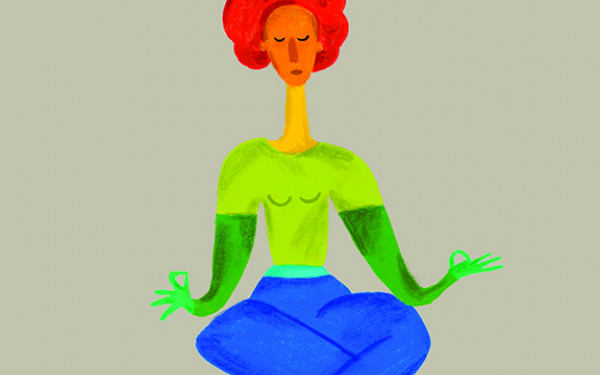Indigenous Scholar Begins New Lecture Series at Concordia
Dr. Taiaiake Alfred Addresses Topic of “Reconciliation as Recolonization”
An audience crammed into a Hall building classroom for the first public lecture in a series hosted by Concordia’s First Peoples Studies Program, a subset of the departments of political science and the school of community and public affairs on Wednesday.
“The idea of the lecture series is to bring Indigenous voices to Concordia and to give an opportunity for them to be heard, in their own words, on their own terms,” explained Daniel Salée, the interim director of the First Peoples Program.
People sat in chairs, on the floor and spilled into the hallway, to listen to scholar Dr. Taiaiake Alfred, originally from the Kahnawake community on unceded Mohawk territory, reimagine how we talk about reconciliation.
Alfred used the opportunity to turn the conversation to one about resurgence. When native communities are constantly positioned to resist, he discussed, they lose the energy and fire needed to continue to exist in the ways in which they know to be an Indigenous lifestyle.
“Resurgence isn’t negating the utility of resistance,” said Alfred. “It’s not saying that there’s no value in reconciliation. It’s saying that we need to focus on what the core of our existence is. The fire that is our nation. Our language, ceremony, culture and relationship to each other,” he explained.
Alfred has written several books including: Wasase: Indigenous Pathways of Action and Freedom, and Peace, Power, Righteousness: an Indigenous Manifesto. He has won the National aboriginal Achievement Award and the Native American Journalists Association award for column writing.
The crowd was a mix of native and non-native participants, of all ages. The subject matter was particularly relevant for all Canadians, as it comes in the midst of national conversations about truth and reconciliation between the Canadian state and Indigenous communities.
The Truth and Reconciliation Commission of Canada was completed in December of 2015, in response to the charges that resulted from the Indian residential schools across the country. The federally-funded program removed Indigenous children from their homes and cultures, in order to assimilate them.
“We need to look at the fundamental harm to Indigenous communities: being disconnected from the land,” said Alfred. He insisted that the focus must be shifted when we talk about colonization. “We need to reconnect to the land and relate to the land in the way that our ancestors did.”
“A lot of the things Indigenous people experience as wrong and the gaps that we feel comes from not being able to have the relationship to the land,” he continued. “Because of contamination, pollution, settlement and people on our territories.”
Alfred urged all people, not just native, to get involved in the conversation and mobilization towards Indigenous resurgence. “This is not just an Indian story,” he said, looking around. “This is a story of everybody.”




_600_375_90_s_c1.jpg)
3_600_375_90_s_c1.jpg)

